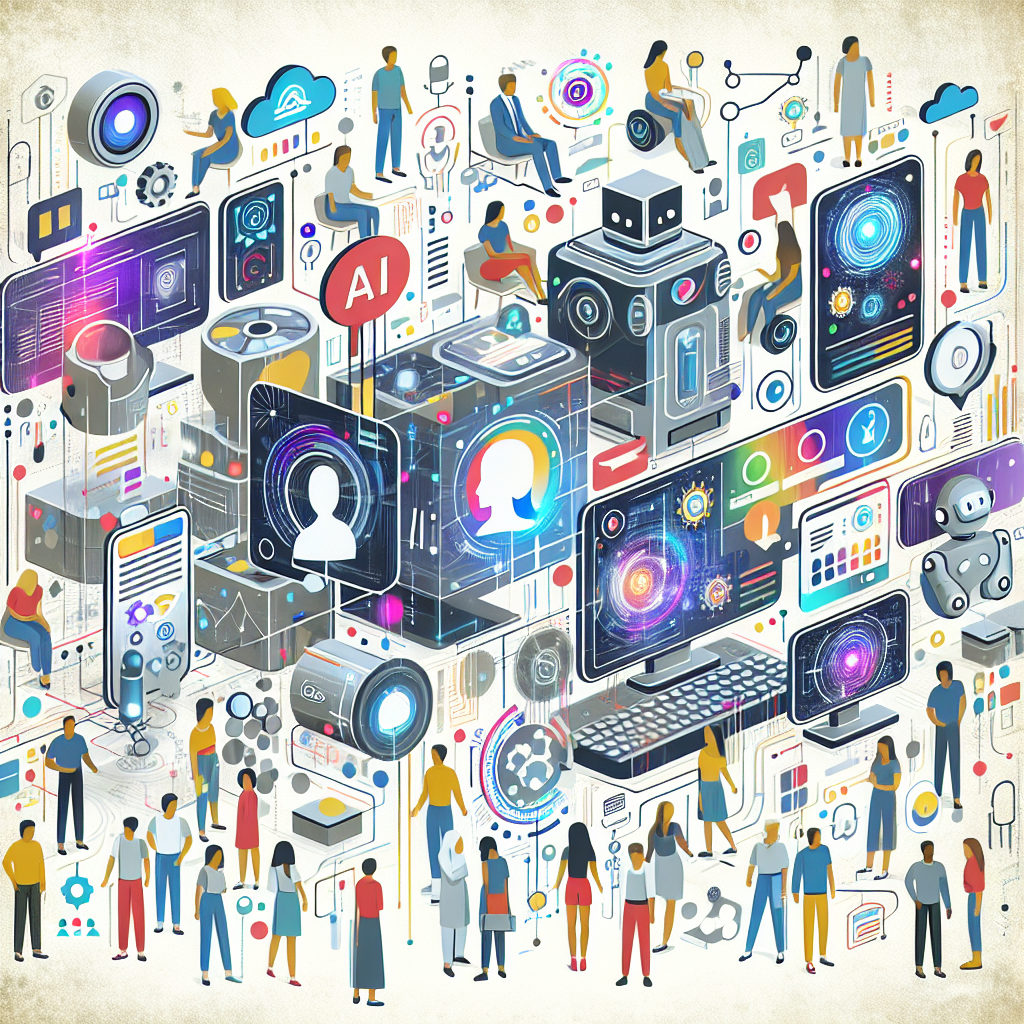In recent years, the development of artificial intelligence (AI) platforms and virtual assistants has revolutionized the way businesses operate and individuals interact with technology. These innovative tools have the potential to streamline operations, improve efficiency, and enhance the overall customer experience. In this article, we will explore the benefits of AI platforms and virtual assistants, as well as some frequently asked questions about these technologies.
AI platforms are computer systems that are designed to perform tasks that would typically require human intelligence, such as learning, reasoning, problem-solving, and language understanding. These platforms can analyze large amounts of data, make predictions, and automate processes to help businesses make informed decisions and improve productivity.
One of the key advantages of AI platforms is their ability to process and analyze data at a much faster rate than humans. This enables businesses to gain valuable insights from their data in real-time, allowing them to make more informed decisions and adapt quickly to changing market conditions. AI platforms can also automate repetitive tasks, freeing up employees to focus on more strategic projects and creative initiatives.
Virtual assistants, on the other hand, are AI-powered programs that can interact with users through voice commands or text inputs. These assistants can provide information, answer questions, perform tasks, and even carry out transactions on behalf of users. Virtual assistants are becoming increasingly popular in both the consumer and business sectors, as they offer a more convenient and personalized way to interact with technology.
There are several benefits of using virtual assistants in business settings. For example, virtual assistants can help improve customer service by providing instant support and information to customers. They can also assist employees in performing tasks more efficiently, such as scheduling meetings, creating reports, and organizing data. Additionally, virtual assistants can automate repetitive tasks, saving time and reducing the risk of human error.
In addition to their practical applications, AI platforms and virtual assistants are also driving innovation in various industries. For example, in the healthcare sector, AI platforms are being used to analyze medical images, diagnose diseases, and personalize treatment plans for patients. In the finance industry, virtual assistants are helping customers manage their finances, make investment decisions, and detect fraudulent activities. In the retail sector, AI platforms are being used to personalize marketing campaigns, improve inventory management, and enhance the shopping experience for customers.
Despite the many benefits of AI platforms and virtual assistants, there are also some concerns surrounding their use. One common worry is the potential impact of AI on jobs, as some fear that automation could lead to job losses and unemployment. However, many experts believe that AI will actually create new job opportunities and help workers focus on more meaningful and creative tasks. Additionally, there are concerns about data privacy and security, as AI platforms and virtual assistants rely on vast amounts of personal data to function effectively. It is crucial for businesses to implement robust security measures to protect user information and comply with data protection regulations.
As AI platforms and virtual assistants continue to evolve, it is essential for businesses to stay informed about the latest developments and trends in this rapidly growing field. By leveraging the power of AI, organizations can gain a competitive edge, improve efficiency, and enhance the overall customer experience. Whether you are a small startup or a large corporation, investing in AI platforms and virtual assistants can help drive growth and innovation in your business.
FAQs:
Q: What is the difference between AI platforms and virtual assistants?
A: AI platforms are computer systems that can perform tasks requiring human intelligence, such as data analysis and problem-solving. Virtual assistants, on the other hand, are AI-powered programs that interact with users through voice commands or text inputs to provide information, answer questions, and perform tasks.
Q: How can AI platforms benefit businesses?
A: AI platforms can help businesses analyze data, make predictions, automate processes, and improve decision-making. They can also streamline operations, increase productivity, and enhance the overall customer experience.
Q: Are AI platforms and virtual assistants secure?
A: While AI platforms and virtual assistants rely on vast amounts of personal data to function effectively, businesses must implement robust security measures to protect user information and comply with data protection regulations.
Q: Will AI platforms and virtual assistants lead to job losses?
A: While some worry that automation could lead to job losses and unemployment, many experts believe that AI will create new job opportunities and help workers focus on more meaningful and creative tasks.
Q: How can businesses leverage AI platforms and virtual assistants?
A: Businesses can leverage AI platforms and virtual assistants to improve customer service, automate tasks, personalize experiences, drive innovation, and gain a competitive edge in their respective industries.

